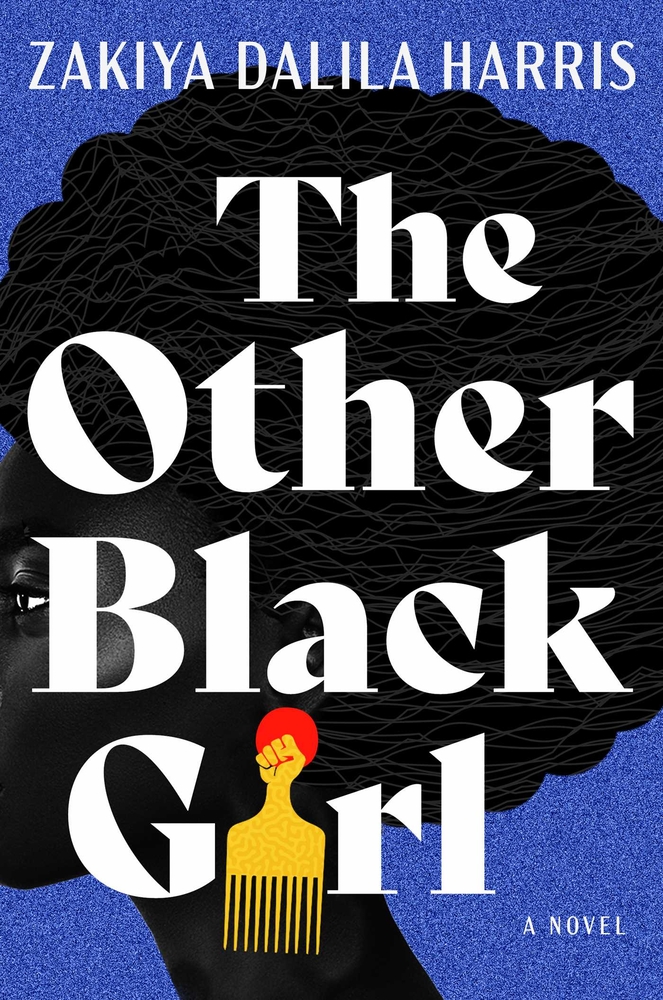'The Other Black Girl' Is Our June Book Club Pick
Read an excerpt from Zakiya Dalila Harris's debut novel, here, then dive in with us throughout the month.
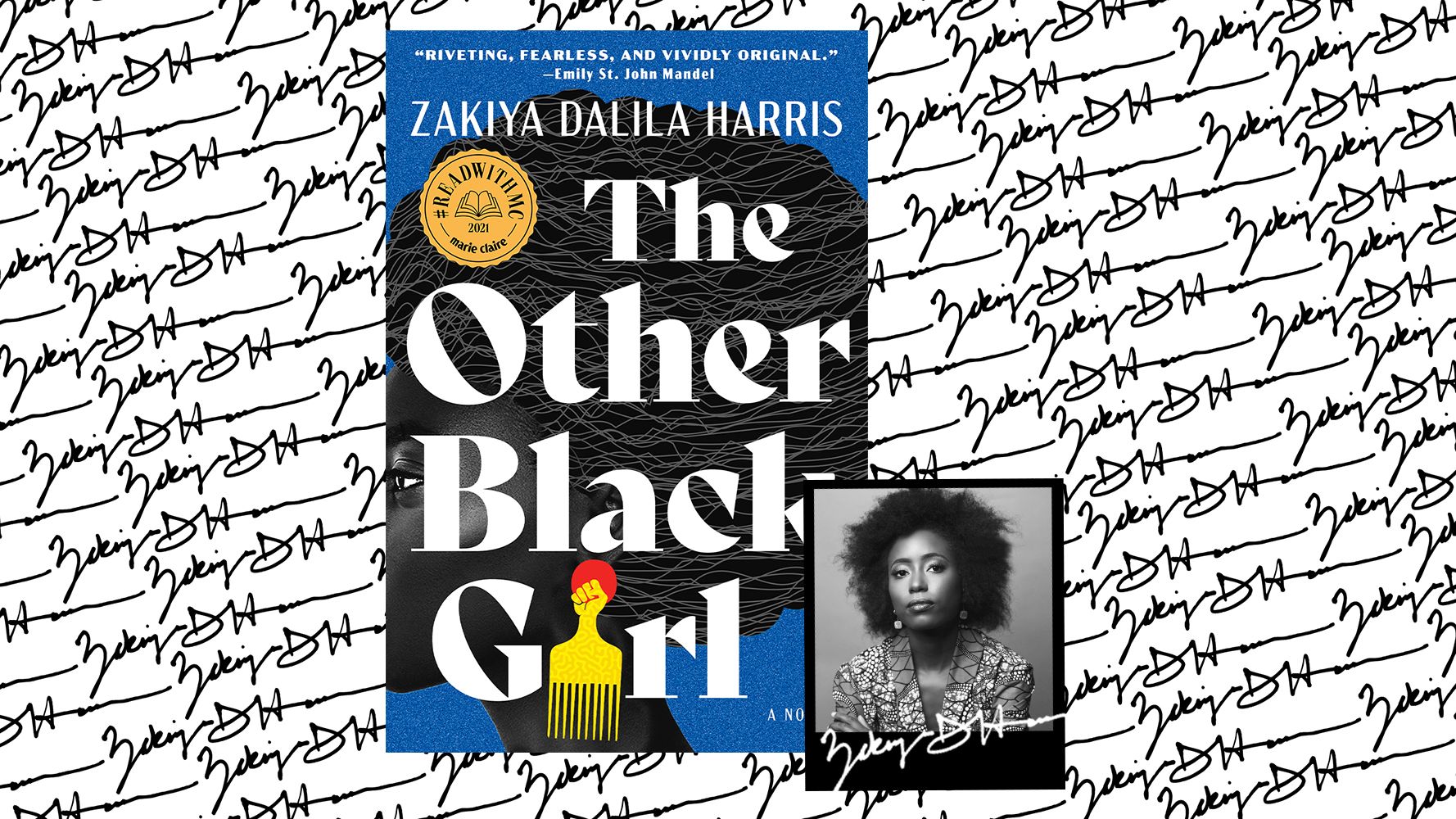
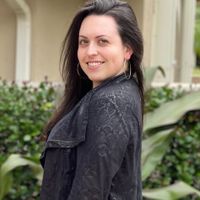
Welcome to #ReadWithMC—Marie Claire's virtual book club. It's nice to have you! In June, we're reading Zakiya Dalila Harris's The Other Black Girl (out today), a story about a 26-year-old editorial assistant who's comforted when another Black girl finally starts working at her company. That is, until she finds out the girl may not be who she seems. Read an excerpt from the novel below, then find out how to participate in our virtual book club here. (You really don't have to leave your couch!)
July 23, 2018
Wagner Books
Midtown, Manhattan
The first sign was the smell of cocoa butter.
When it initially crept around the wall of her cubicle, Nella was too busy filing a stack of pages at her desk, aligning each and every one so that the manuscript was perfectly flush. She was so intent on completing this task—Vera Parini needed everything to be flush, always—that she had the nerve to ignore the smell. Only when it inched up her nostrils and latched onto a deep part of her brain did she stop what she was doing and lift her head with sudden interest.
It wasn't the scent alone that gave her pause. Nella Rogers was used to all kinds of uninvited smells creeping into her cubicle—usually terrible ones. Since she was merely an editorial assistant at Wagner Books, she had no private office, and therefore no walls or windows. She and the other open-space assistants were at the mercy of a hard boiled egg or the passing of gas; they were often left to suffer the consequences for what felt like an hour afterward.
Get exclusive access to fashion and beauty trends, hot-off-the-press celebrity news, and more.
Adjusting to such close proximity had been so difficult for Nella during her first few weeks at Wagner that she'd practiced breathing through her mouth even when it wasn't called for, like when she was deciding between granolas at the grocery store, or when she was having sex with her boyfriend, Owen. After about three months of failed self-training, she had broken down and purchased a lavender reed diffuser that had the words JUST BREATHE scrawled across its front in gold cursive letters. Its home was the far corner of her desk, where it sat just beneath the first edition of Kindred that Owen had given her shortly after they started dating.
Nella eyed the gold foil letters and frowned. Could it have been the lavender diffuser she smelled? She inhaled again, craning her neck upward so that all she could see were the gray and white tiles that lined the ceiling. No. She'd been correct—that was cocoa butter, alright. And it wasn't just any cocoa butter. It was Brown Buttah, her favorite brand of hair grease.
Nella looked around. Once she was sure the coast was clear, she stuck her hand into her thick black hair and pulled a piece of it as close to her nose as she could. She'd been proudly growing an afro over the last three years, but the strand still landed unsatisfyingly between her nose and her cheek. Nonetheless, it fell close enough to tell her that the Brown Buttah smell wasn't coming from her own hair. What she was smelling was fresh, a coat applied within the last hour or so, she guessed.
This meant one of two things: One of her white colleagues had started using Brown Buttah. Or—more likely, since she was pretty sure none of them had accidentally stumbled into the natural hair care aisle—there was another Black girl on the thirteenth floor.
Nella's heart fluttered as she felt something she supposed resembled a hot flash. Had it finally happened? Had all of her campaigning for more diversity at Wagner finally paid off?
Her thoughts were cut short by the loud, familiar cackle of Maisy Glendower, a squirrelly editor who appreciated modulation only when someone else was practicing it. Nella combed through the bray, listening hard for the hushed voice that had made Maisy laugh. Did it belong to a person of a darker hue?
"Hay-girl-hay!"
Startled, Nella looked up from her desk. But it was just Sophie standing above her, arms wrapped snugly around the side of her cubicle wall, eyes as wide and green as cucumbers.
Nella groaned inwardly and clenched a fist beneath her desk. "Sophie," she mumbled, "hi."
"Haaaay! What's up? How are you? How's your Tuesday going?"
"I'm fine," Nella said, keeping her voice low in case any more audible clues floated her way. Sophie had tamed her eyes down a bit, thank goodness, but she was still staring at Nella as though there was something she wanted to say, but couldn't.
This wasn't unusual for a Cubicle Floater like Sophie. As Cubicle Floaters went, she wasn't the worst. She didn't play favorites, which meant that your chances of seeing her more than once a week were slim. She was usually too busy hovering beside the cubicle of another assistant, her lazy smile reminding you of how good you didn't have it. By the luck of the draw, Sophie worked for Kimberly, an editor who'd been at Wagner Books for forty-one years. Kimberly had edited her first and last bestseller in 1986, but because this bestseller had not been just a bestseller—it had been adapted into a television show, a blockbuster film, a graphic novel, an adult film, a musical, a podcast, a miniseries, and another blockbuster film (in 4DX)—she was granted a pass on every non-bestseller that followed. Royalties were nothing to laugh at.
Now nearing the end of her long career, Kimberly spent most of her time out of the office, and Nella suspected Sophie spent most of her time waiting for Kimberly to kindly retire already so that she could take her place. In a year, maybe less, it would dawn on Sophie that her boss wasn't going anywhere unless someone told her to, and no one ever would. But for now, Sophie hung on naively, just as every single one of her predecessors had.
"Kim's still out," Sophie explained, even though Nella hadn't asked. "She sounded awful on the phone yesterday."
"Which procedure is she getting done this time?"
Sophie grabbed the taut bit of flesh between her chin and her clavicle and wiggled it around.
"Ah. The crucial one."
Sophie rolled her eyes. "Yep. She probably dropped more on that than we make here in a month. By the way, did you see...?" She cocked her head in the direction of Maisy's voice.
"Did I see what?"
"I think Maisy's got another potential candidate in." Sophie tossed her head again, this time adding in a suggestive, wiggling eyebrow.'' And I don't know for certain, but she seems like she might be...you know."
Nella tried to keep from grinning. "No, I don't," she said innocently. "Might be what?"
Sophie lowered her voice. "I think she's...Black."
"You don't have to whisper the word 'Black,' Nella chided, even though she knew why Sophie did: Sounds, like smells, carried over cubicle walls. "Last time I checked, that was a socially acceptable word to use. I even use it sometimes."
Sophie either ignored her joke or didn't feel comfortable laughing at it. She leaned over and whispered, "This is so great for you, right? Another Black girl at Wagner? You must be so excited!"
Nella withheld eye contact, turned off by the girl's intensity. Yes, it would be great to have another Black girl working at Wagner, but she was hesitant to do a celebratory Electric Slide sequence just yet. She'd only believe that the higher-ups at Wagner had finally considered interviewing more diverse people when she saw it. Over the last two years, the only people who'd been interviewed or hired were Very Specific People who came from a Very Specific Box.
Nella looked up from her desktop at Sophie, who happened to be one of these Very Specific People, and who was still chattering on. Over the course of just a few minutes, Sophie'd managed to talk her self onto a train of social awareness, and it was clear she had no intention of getting off anytime soon. "It reminds me of that anonymous op-ed Book Center article I sent you last week—the one I swore you had to have written, because it just sounded so you—about being Black in a white workplace. Remember that piece?"
"Yeah, I do...and for the tenth time, I definitely didn't write that article," Nella reminded her, "even though I can obviously relate to a lot of the stuff that was in it."
"Maybe Richard saw it and decided to do something about the lack of diversity here? I mean, that would be something. Remember how hard it was just to get people talking about diversity in one place? Those meetings were painful."
The word "extracurricular" had hit Nella hard and fast in the eye, like a piece of shrapnel. The company basketball team, the papermaking club—those were extracurriculars. Her endeavors to develop a diversity committee were not.
To call them meetings seemed gratuitous, but Nella wasn't in the mood to go down that slippery slope. She had more important things to pursue. Like how to get rid of Sophie.
Nella reached for her phone, let out a small groan, and said, "Whoa! Is it already 10:15? I actually need to make a very important phone call."
"Aw. Darn." Sophie looked visibly disappointed. "Okay."
"Sorry. But I'll report back!"
Nella would not report back, but she'd learned that punctuating too-long interactions with this promise made parting much easier.
Sophie smiled. "No prob. Later, girl!" she said, and off she went, as quickly as she'd come.
Nella sighed and looked around aimlessly, her eyes skipping over the stack of papers she still hadn't delivered to her boss. In the grand scheme of things, the speed with which one could bring something from point A to point B should have zero effect upon whether that person deserved to be an assistant editor—especially since she'd worked for Vera, one of Wagner's most exalted editors, for two years now. But things between them lately had been, for the lack of a better word, weird. Their anniversary check-in a few days earlier had ended on a less-than-savory note. When Nella had asked for a promotion, Vera had listed at least a dozen surprise grievances she'd had with Nella's performance as her assistant, the last being the most unsettling of all: "I wish you'd put half the effort you put into those extracurricular diversity meetings into working on the core requirements."
The word "extracurricular" had hit Nella hard and fast in the eye, like a piece of shrapnel. The company basketball team, the papermaking club—those were extracurriculars. Her endeavors to develop a diversity committee were not. But she'd smiled and said thank you to her boss, who'd started working at Wagner years before Nella was even born, and tucked this piece of information into her back pocket for safekeeping. That was where she believed any dreams of letting her Black Girl Flag fly free would have to remain.
But now the smell of Brown Buttah was hitting her nose again, and this time, there were telltale sounds: First, Maisy's practiced joke about Wagner's zany floor plan ("It makes about as much sense as the science in Back to the Future"); then, a laugh-deep, a bit husky around the edges, but still cocoa butter smooth at its core. Genuine, Nella could tell, as brief as it was.
"...impossible. I swear, once you find where one person sits, you'll never find them a second time!" Maisy cackled again, her voice growing louder as she led her companion closer to her office.
Realizing that they would have to walk by her own cube to get there, Nella looked up. Through the small crack in her partition, she spotted the swath of dark locs, the flash of a brown hand.
There was another Black person on her floor. And given Maisy's spiel, this Black person was here for an interview.
Which meant in the next few weeks, a Black person could quite possibly be sitting in the cube directly across from Nella. Breathing the same air. Helping her fend off all the Sophies of the Wagner office.
Nella wanted to put a victorious fist in the air, 1968 Olympics style. Instead, she made a mental note to text Malaika this latest Wagner update the earliest chance she got.
"I hope your trip wasn't too long," Maisy was saying. "You took the train from Harlem, right?"
"Actually, I'm living in Clinton Hill right now," the Black girl responded, "but I was born and raised on One Thirty-Fifth and ACP for a while."
Nella sat up straighter. The girl's words, which sounded warmer and huskier than the laugh that had fallen easily from her mouth, evoked a sense of Harlem cool that Nella had always wished she possessed. She also noted—with reverence and not a little bit of envy—how confident the girl sounded, especially when Nella recalled her own anxiety-inducing interview with Vera.
The girl had a wide, symmetrical face, and two almond-colored eyes perfectly spaced between a Lena Horne nose and a generous forehead. Her skin was a shade or two darker than Nella's chestnut complexion, falling somewhere between hickory and umber.
The footsteps were only inches away now. Nella realized she'd be able to get a good glimpse at the newcomer if she slid over to the far right of her cube, so she did exactly that, pretending to leaf through the manuscript Vera was waiting on while keeping one eye trained on the strip of hallway that led to Maisy's office. Almost instantly, Maisy and her prospective dreadlocked assistant made their way into her periphery, and the full picture came into view.
The girl had a wide, symmetrical face, and two almond-colored eyes perfectly spaced between a Lena Horne nose and a generous forehead. Her skin was a shade or two darker than Nella's chestnut complexion, falling somewhere between hickory and umber. And her locs—every one as thick as a bubble-tea straw and longer than her arms—started out as a deep brown, then turned honey-blonde as they continued past her ears. She'd gathered a bunch and piled them on top of her head in a bun; the locs that hadn't made it hung loosely around the nape of her neck.
And then there was the girl's pantsuit: a smart-looking ensemble composed of a single-button marigold jacket and a matching pair of oversized slacks that hit a couple of inches above the ankle. Below that, a pair of red patent leather high-heeled ankle boots that Nella would have broken her neck just trying to get into.
It was all very Erykah-meets-Issa, another detail Nella was filing away for Malaika, when she heard Maisy ask the girl to explain what "ACP" meant. And it was a good thing she had, because Nella hadn't known, either.
"Oh, sorry—that's Adam Clayton Powell Jr. Boulevard," the girl said, "but that's kind of a mouthful."
"Oh! Of course. A mouthful indeed. Harlem is such a great neighborhood. Its history is just so rich. Wagner held an event at the Schomburg earlier this year—February I think it was—for one of our authors. It was very well received."
Nella fought back a snort. Maisy hadn't attended this aforementioned event; what's more, Nella was willing to bet her middle name that the Museum of Natural History was as far north as Maisy had ever traveled in Manhattan. Maisy was a kind enough woman—she made bathroom small talk as well as the next senior-level employee—but she was fairly limited in her sense of what "the city" entailed. Just the mention of Williamsburg, despite its Apple Store, Whole Foods, and devastating selection of designer boutiques, caused Maisy to recoil as though someone had just asked to see the inside of her vagina. Surely this dreadlocked girl could sense that Maisy had no true sense of Harlem's "culture."
Nella wished she could see the look on the Black girl's face, but they'd already started to enter Maisy's office, so she had to settle for a chuckle in its place. It was subtle, but in the milliseconds that passed before Maisy shut her door, Nella was able to detect amusement at the end of that chuckle—an exasperated kind of amusement that asked, without asking, You don't spend time with Black people often, do you?
Nella crossed her fingers. The girl probably didn't need it, but she wished her luck, anyway.
From the book The Other Black Girl by Zakiya Dalila Harris, to be published on June 1, 2021 by Atria Books, an imprint of Simon & Schuster. Copyright © 2021 by Zakiya Dalila Harris.
If audio is more your thing, you can listen to the excerpt below, and read the rest of the book on Audible.
Audio excerpt courtesy of Simon & Schuster Audio from The Other Black Girl by Zakiya Dalila Harris, read by Read by Aja Naomi King, Joniece Abbott-Pratt, Heather Alicia Simms, and Bahni Turpin. Copyright © 2021 by Zakiya Dalila Harris. Used with permission from Simon & Schuster, Inc.
RELATED STORIES
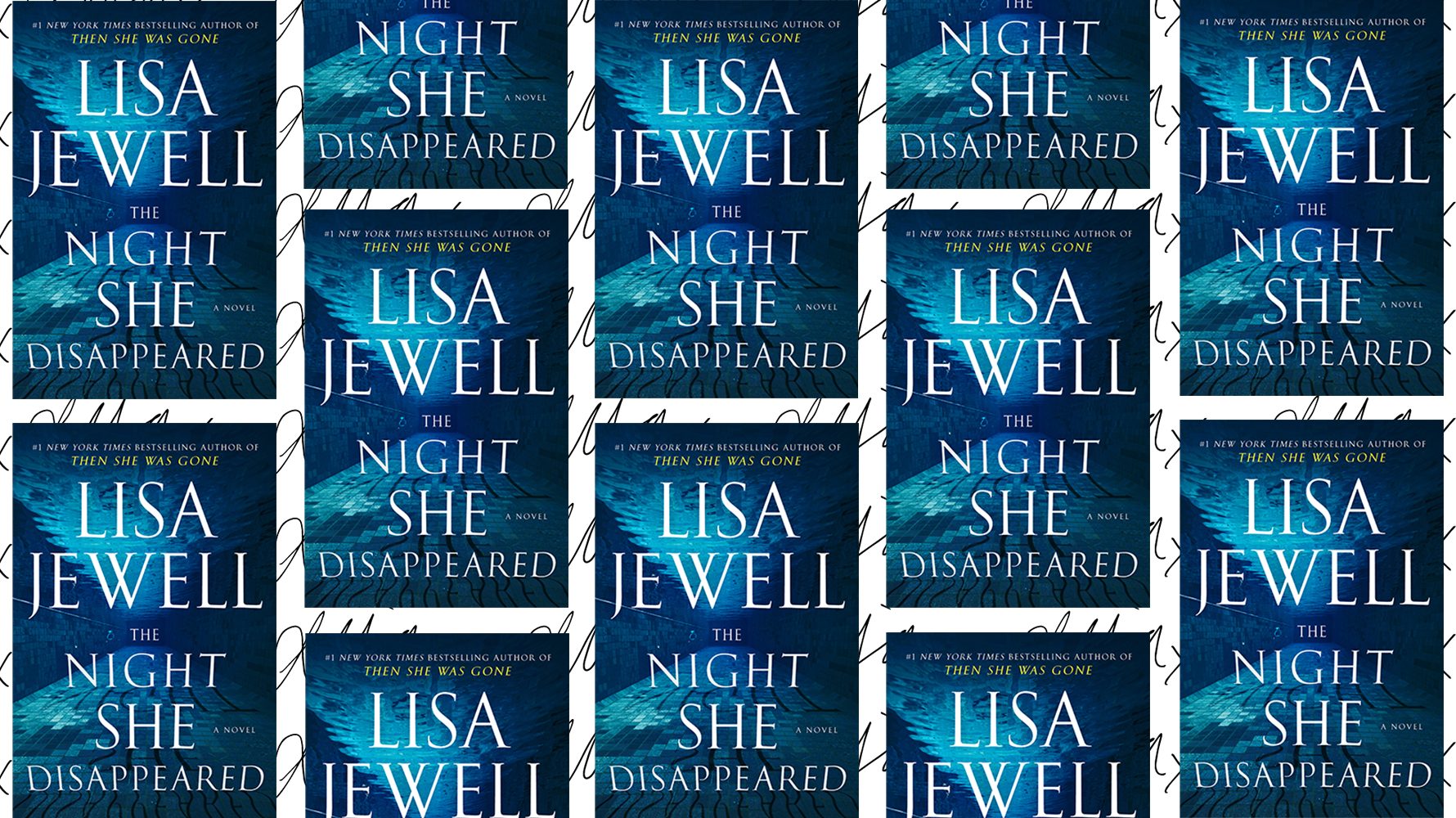
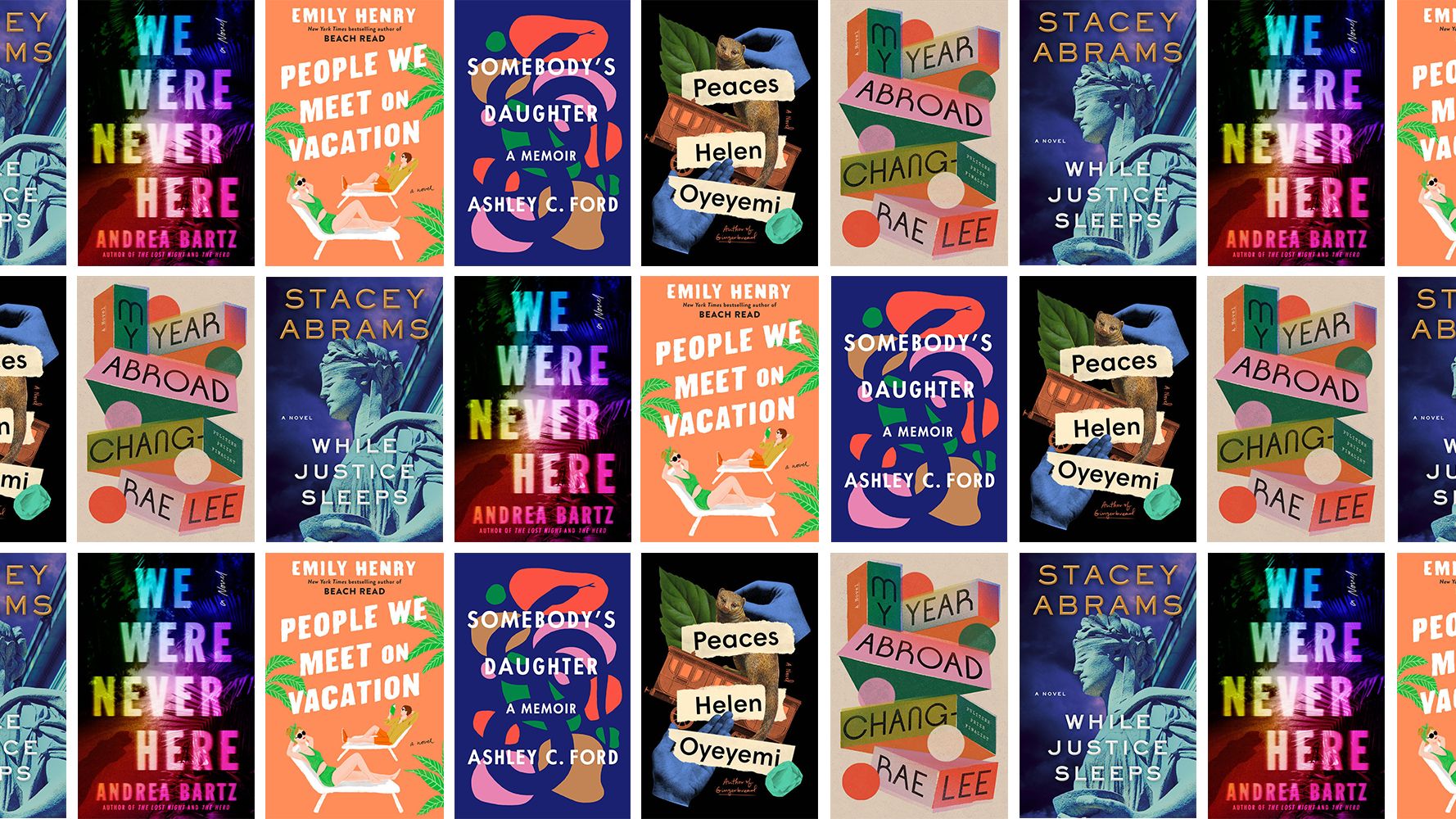
Rachel Epstein is a writer, editor, and content strategist based in New York City. Most recently, she was the Managing Editor at Coveteur, where she oversaw the site’s day-to-day editorial operations. Previously, she was an editor at Marie Claire, where she wrote and edited culture, politics, and lifestyle stories ranging from op-eds to profiles to ambitious packages. She also launched and managed the site’s virtual book club, #ReadWithMC. Offline, she’s likely watching a Heat game or finding a new coffee shop.
